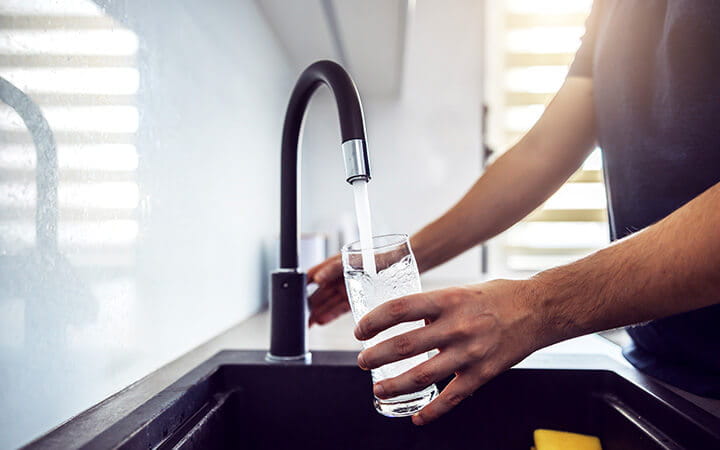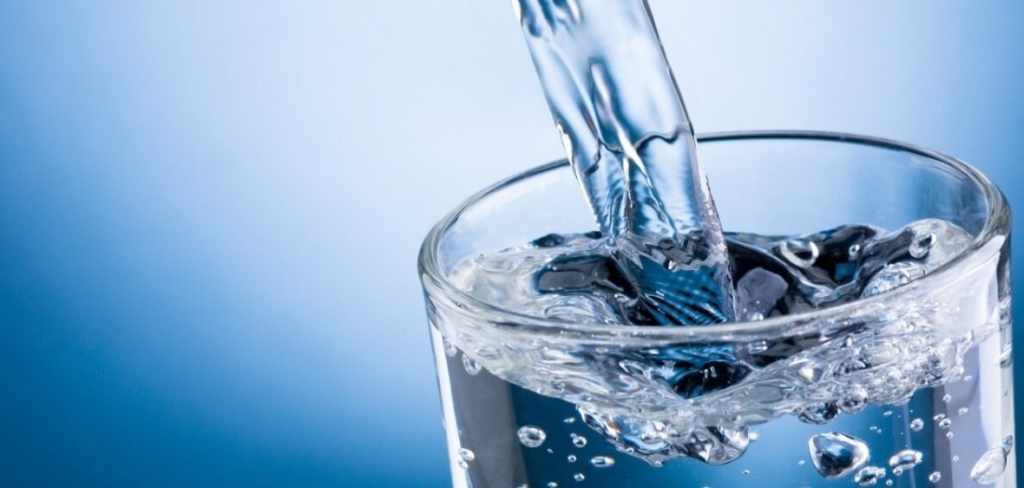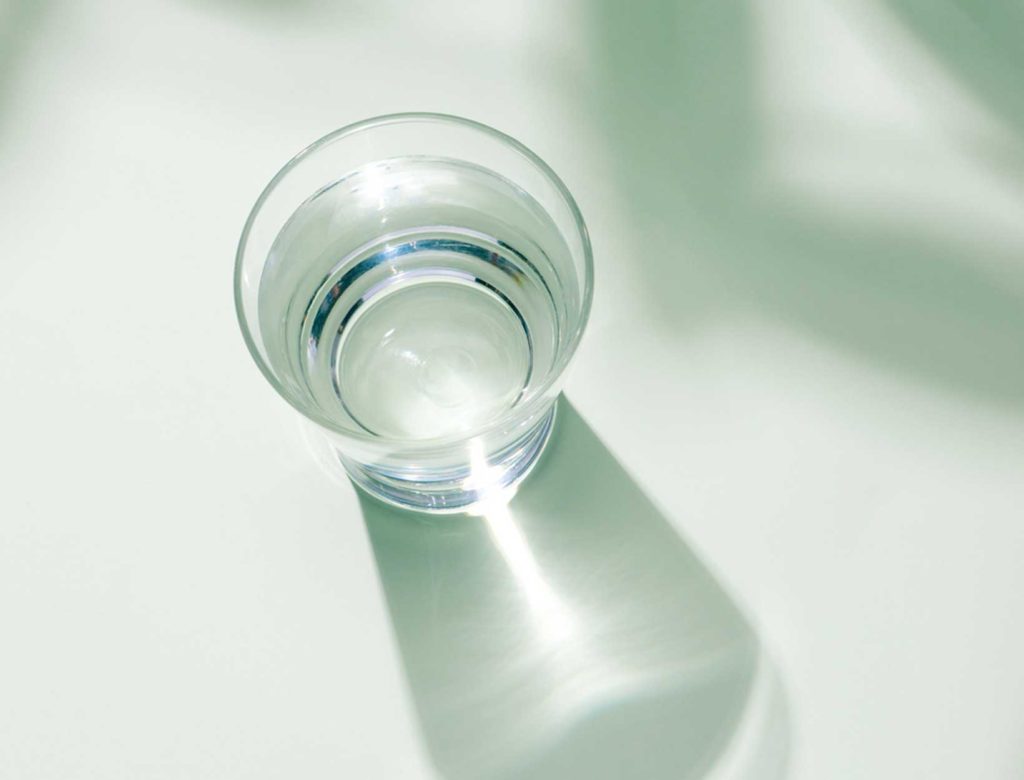Water is an absolute necessity of life. It makes about 60% of your body and is involved in many essential body functions ranging from regulating body temperature to flushing out toxins and protecting body tissues, joints as well as the spinal cord. Water also plays a critical role in carrying out many of the body’s chemical reactions. Without water, parts of your body such as the skin would lack its proper shape and fullness. This article will go into detail about the importance of water filtration so that you’re drinking the best quality of your water to keep you healthy.
Due to the high risk associated with impure water, the demand for water filtration has never been higher. Our natural resources are also under pressure, as we grapple with pollution, climate change, and a rapidly growing population. Unfortunately, tap water, which is meant to be safe for drinking, can be quite harmful as contaminants affect overall water quality. Additionally, physical, chemical and microbiological impurities from various water sources make water even more unsafe for consumption.
Boiling water used to be sufficient enough to kill many germs and bacteria, making it safe to consume. However, things have since changed as boiling water, even for more than 20 minutes will not get rid of new age contaminants such as pesticides and other dangerous chemicals that find their way into our water sources. That’s why it’s crucial to understand the importance of water filtration, and purification options to keep your families drinking water safe. Water filters remove bacteria and harmful chemicals which can cause diseases and poor health. Here are some of the reasons to filter your water:
Given the significance of water in sustaining life, it’s no surprise that access to clean water is a basic human right. Your body needs safe drinking water for it to remain healthy. Impure water, on the other hand, can be very deadly. That’s why the importance of water filtration is incredibly high. Water filtration experts at Clear Water Concepts will be able to help you with anything ranging from whole-house water filtration systems to water softeners to improve the water quality in your home.…

Hydration has become big business in recent years and the mind-boggling variety of water choices at the grocery store is proof. Flavored, unflavored, sparkling, distilled, purified, artesian and spring water – the choices are endless. Often labeled as healthier, natural and pure, some brands go so far as to claim their products will boost vitality and energy levels. And, although these designer hydration products don’t come cheap, people are buying them by the shopping-cart load.
A recent advisory by the EPA warns that even tiny amounts of chemicals found in drinking water can pose risks. Per- and polyfluoroalkyl substances (PFAS), also known as “forever chemicals,” are manmade compounds found in many consumer products that have found their way into our water source. However, they’ve been traced to bottled water as well.
So what can you do? A variety of water filters and bottled water options exist. Let’s take a closer look to help you decide.
The water that comes out of your faucet is filtered, disinfected and often contains added fluoride to prevent tooth decay. Safety standards are set by the Environmental Protection Agency (EPA) and enforced by the town, city or state where you live. So, in general, tap water is good, cheap and safe to drink.
Some people choose to filter their tap water, either by attaching a filter to the faucet or refrigerator, using a filtered pitcher, or by installing a whole-house or under-the-sink filtration system. Different filters remove different chemicals, but most will remove or reduce contaminants such as chlorine, iron, sulfur and bacteria. Filtered water often tastes and smells better, but isn’t necessarily safer or better for you – in fact, some filters may remove the fluoride, which is beneficial for dental health. The filters also need to be replaced regularly to continue working properly.
Consumers have multiple choices when it comes to home filtration systems, some of which can remove many, although not all, of the PFAS chemicals from their drinking water. The two most common types of filters include:
To filter or not-to-filter your tap water is a personal choice. The one exception is if you live in an area where the water supply is known to have high levels of contaminants. In this situation, it is a good idea to invest in a high quality water filtration system or buy bottled water for drinking.
All bottled waters are regulated by the FDA and are safe to drink. Some have flavors and/or additives, so if calories or sugar are an issue, be sure to check labels for added sweeteners.
Here’s a quick look at the different kinds of water available for purchase:
Purified
Water that is labeled “purified” has been put through a process of reverse osmosis, meaning it is forced through a membrane to filter out chemicals, microbes and minerals.
Artesian
Water that is sourced from an underground aquifer – a body of porous rock in the earth’s surface that is saturated with groundwater. When the aquifer is positioned between layers of nonporous rock, it puts the rock and the water it contains under intense pressure. This pressure can force the water out of the aquifer and allow it to rise to the surface naturally, or the aquifer can be tapped by a well – called an artesian well – to collect the water it contains.
Some claim that the natural pressure acts to filter contaminants and add beneficial minerals; however, government agencies state that artesian water is really no different from regular groundwater.
Spring
Similar to artesian water, spring water comes from underground aquifers. It is essentially groundwater that has been naturally filtered as it rises to the earth’s surface through rocks like limestone, sandstone and clay. This process of natural filtration adds a range of minerals, including magnesium and calcium, which is why spring water may also be referred to as mineral water.
Distilled
Distilled water is steam from boiling water that has been cooled and returned to its liquid state. Distillation eliminates contaminants but it also removes more than 99.9 percent of the minerals in the water, making it essentially flavorless. If purity, not taste, is your priority, distilled water is as pure as it gets. It is usually sold in gallon jugs and is the least expensive type of bottled water.
Electrolyte
Electrolyte water is purified water with electrically-charged minerals added, including sodium, potassium, calcium and magnesium. Electrolytes are essential for many body functions and can be lost during strenuous exercise and sweating. This type of water is typically more expensive but may be a good choice for athletes or anyone involved in physically challenging activities that cause fluid loss through sweating.
Sparkling
Sparkling is just another word for carbonated – water that has been infused with carbon dioxide gas under pressure. Unflavored sparkling water may be sold as club soda or seltzer water and contains zero calories. Flavored sparkling waters are available in countless varieties and are a popular choice; however, many have added sugar, fruit juice or artificial sweeteners so it’s important to read the nutrition labels if calories and/or sugar content are a concern.…

Water is essential for life. But the quality of water that we consume every day is becoming dangerous for our health. To improve the quality of water for daily use, it is now mandatory to install water filters in our home. But people tend to make mistakes while buying a water filters in various aspects including purpose, flow rate and capacity.
Every filter works best on its own, but it is not necessary that it works best for your requirements too. Before buying a water filter you should go through a thorough analysis and research to get the best solution for your water filtration needs.
What type of source do you use for your daily usage? Most of the filtration requirements are defined by the source of water you use. The very first thing to do is test quality of water that is supplied to you. There are easy to use checkup kits available or you can even call an expert to do the job. You need to install a water filter only if your water source is contaminated. There are mainly two types of water sources:
Private source includes bottled water, spring water, and water from ponds, shallow wells, streams, ponds and river canals. Private sources also include individually created sources like rainwater harvesting, residential bores, cisterns.
The United States safe drinking water act identifies public sources as the ones provided by public entities like local government supply, ration water tanks and city water systems.
If you get water from a private source like well and bottled water, then you can eliminate contamination from the source itself. But rivers, ponds, streams require a lot of expense and time to be cleaned. Natural private sources are not reliable in terms of quality. So, a water filter is required.
In case of public water sources, you can file a complaint against the water contamination and quality to the local authorities which may not be effective readily. If the water from a public source is contaminated, you need to get a water filter installed fit for your needs.
If the water report and tests do not show any hazardous contamination in your water supply, then the problem may be in your house water system. Check for leakage in all faucets and pipelines going around your house. Make sure that the surroundings of your house are clean and there is no clogged drainage around your supply line. Metal water pipes slowly accumulate rust and other organic contaminants due to moisture. The pipes throughout the house should be cleaned quarterly to prevent organic growth and rust.
Water filters eliminate only the specific contaminants that they mention in their labels. Be aware of what kind of contamination prevails in your water supply. Check the list of contaminants the water filter you want to buy eliminates. Analyze your daily consumption of water based on purpose like drinking, washing, bathing and cooking. If you need water purification for all your needs, whole house filters with Point of Entry system are the right fit. If the water purification is required only for drinking or bathing purpose, then point of use filters like RO filters, under sink filters and countertop water filters.
With advancement in water filtration technology, there are many processes available today to purify water. There are many categories of water filters based on performance, durability, maintenance and cost which fit all types of water filtration solutions ranging from personal home to a commercial industry.
The maintenance cost of all filter categories varies highly. While many filters may come cheap in cost, the maintenance like replacement of cartridges and hoses is costly. So get detailed maintenance and repair costs of your water filter from the company before buying them.
Water filters are not a one-time investment. They need regular maintenance depending on the quality of the cartridges. Many companies provide features like quality index and security alarms for cartridges replacement which are beneficial. If the filters are regularly maintained the quality of water deteriorates, hoses may choke and power consumption increases.
Do water filters actually work? Are you going to be scammed with an overrated device with false promises? Is doorstep water test trustable?
In case of any health related product, you should be aware of the scams that go around to stay alert and prevent getting scammed yourself. It highly depends on the company that you buy the water filter from. There are many companies that provide water filters at very low costs. They are mostly fake or ineffective. Water filtration is not a cheap process and any person who sells them at unbelievably low price is probably scamming you.
In recent news, many water filter scams have come into lime light. The worst of all was the door step sales and service scam to test your water quality and provide fake water filters. While there are many reputed companies that provide door step sales and service feature, they do not approach you without your solicitation.
Do you think that your water filter throws out more water than it purifies?
Then, you may be a victim of another scam. The American National Standards Institute (ANSI) does not allow more than 30% of water to seep out from waste hose. But due to this scam being neglected, almost 3 liters of water seeps out to provide 1 liter of pure water.
The reviews not only help in finding a water filter company that is legitimate, they also help you find the right one for your requirements. Customer feedback is one of the best ways to find a good water filter company both for the product quality and performance and the post sales services and warranty.
You can also compare the price of the water filters online. If the price of another product with the same features is low, it is anyway beneficial for your pockets.
Important Note – Always read the description and contaminant list that he water filter eliminates. Never install water filters on your own as that voids the warranty. Read the instructions of use carefully for optimum performance.…

Each industry, especially those involved in manufacturing, must comply with a regulated set of standards to ensure water quality and safety. Regardless of your sector, your water system must have the capabilities to filter out water in an efficient yet environmentally friendly manner. As you search for water filtration technology in Australia to adhere to these standards, you’ll need to know what to look for and the right questions to ask.
Having the right information before you settle on an industrial water filtration system is essential to choosing the ideal one for your business. You’ll have to ensure that the system effectively removes contaminants and other particles at a reasonable price. Here are five questions to ask a water purification specialist before purchasing a system:
The kind of water you need highly depends on your industry. For example, pharmaceutical manufacturers need sterile water for their products. They require sterile water for their purification methods, which allows them to curb bio-contamination.
Different industries follow different regulations surrounding the ways they need to filter water before or after use, so you’ll want to ask the specialist’s advice on the type of filtration system you need. Depending on the nature of your business, you’ll likely need different filters to achieve different water qualities. If your facility requires numerous water types, the specialist can find ways to adjust your pre-treatment system so it can deliver multiple levels of purity.
Contaminated water contains many harmful substances that go beyond microbes and fungi. It can contain chemicals that change its pH balance and heavy metals that are hazardous to humans. Other substances like chlorine and salt ions may also affect the water quality and have an impact on your production systems.
If you wish to reuse wastewater in your facility, this is an incredibly important question to ask. Knowing which impurities you need to remove will determine the filtration methods you need. By asking a water specialist about this, you’ll understand the mineral composition and how it affects water quality.
To set up your water filtration system, you’ll also need to know what your daily water usage is. For example, the energy industry uses large amounts of water for conduction and cooling, making a small industrial filter system unsuitable for a power plant.
Knowing your daily water usage will help you determine what filtration device your facility needs to purify water adequately. It must be efficient enough to fulfil your industry’s demands along with the volume of water you use.
An essential question to ask your water purification specialist is about their qualifications. Your service provider must have the appropriate documents, including their licence, insurance, and certifications. The product you choose must also come with a warranty in case anything goes wrong.
You should also ask if they offer maintenance services for the filtration systems they provide. Such a service will help you take care of your system and repair any issues immediately, saving you time and money.
Water purification systems are an investment, making them a worthy purchase. While you may be investing a significant amount upfront, a purification system generates returns for your company in the long run. The filtration method improves the quality of your output as it thoroughly cleans water while decreasing your utility bills. The system does more than clean water; it’s an excellent investment that goes beyond limiting possible damages to the environment.
While water treatment costs can be high with the wrong system, a good service provider will ensure you have the right system for your needs. Asking the right questions will help the water specialist find a system that is most suitable for your business and your budget, bringing you the best of both worlds.
Industrial water filtration is incredibly crucial to every industry, as the environmental regulations for many countries are tightening up. Finding the right service provider will help you keep compliant with government regulations while boosting your facility’s output.…
Water is the ultimate life source, providing you and your family clean, purifying water for drinking, cooking, bathing, and more. But is that seemingly clear liquid running from your taps really as clean as you think?
Toxins find their way into clean water through old pipes, agricultural drainage, sewers, chemicals, and pesticides, contaminating both municipal and well water without warning. And because water is such a big part of our everyday lives, those who indulge in contaminated water for extended periods of time may be putting themselves at risk of gastrointestinal discomfort, including cramping and nausea or, even worse, cancer and death.
Before you rush out to buy a water filtration system, you should first identify the toxins present in your household water. Your local municipality can share local water reports with you. Or search local water reports through the Environmental Working Group’s online Tap Water Database. View Tap Water Toxins By Zipcode >>
There are many types of technologies applied to water filters of all shapes and sizes, so it’s best to know exactly which toxins you wish to filter out before settling on a solution. Below are just a few technologies available to reduce and remove toxins in your household tap water.


Water filtration systems fall into three basic categories: Countertop, under the sink, and the whole house. Countertop systems are the cheapest and easiest solution for those of you who are still testing the waters and learning about water filtration, while whole-house systems ensure clean water from every tap.
Read on as we discuss the three styles of water filtration options available.


Countertop water filters include pitchers, dispensers, and faucet mounts and are by far the cheapest starter water filter and are an excellent choice for small households and renters. They require little to no installation and can filter a wide range of toxins including, but not limited to: chlorine, lead, copper, cadmium, mercury, zinc, benzene, and radon.


Water pitchers and dispensers, like the popular Brita and Pur pitchers, can be purchased from most big box stores and online for as little as $25. These water filters require regular filling and are best for households whose primary concern is toxins in drinking water. Pitcher-style water filters generally use carbon filter technology and gravity to pull tap water through the filter and into the bottom of the pitcher for pouring. Filters last about three months and are extremely easy to replace. These gravity water filters take some time to purify water and require refrigerator space to keep cold, and at a price point of $25 and up, they are an excellent solution for singles, couples, and small households.


For those of you who’d rather your clean water flow freely for quicker access to toxin-free water for cooking and drinking, a faucet mount water filter might be right for you. These water filters attach to your existing faucet and pull toxins from the water as it passes from the tap, through the filter, and into your waiting cup. Faucet mount filters filter water much quicker than a gravity filter using the same carbon technology and can be switched on and off without removing.
Faucet mount water filters can be self-installed, making them an excellent choice for renters. Be sure to check filter compatibility with your home faucet to ensure a proper fit!
Under sink water filtration systems offer the widest variety of filtration options, allowing homeowners to filter for specific toxins found in their local water report. Just like they sound, these more advanced water purification systems filter tap water through a hidden device under the kitchen sink. Local water pushes through the system, cleaning it, and then dispenses through a smaller, separate water faucet installed in the sink.
Most under sink water purifiers use a carbon block filter with options to add additional filters for sediment, minerals, specific toxins, and water softening. These systems are the best for reducing targeted toxins found in your water and won’t affect household water pressure. They do, however, require professional installation and start at $100.


Reverse osmosis systems are the only water filtration system certified by the National Sanitation Foundation (NSF) to reduce fluoride, nitrate, lead, and copper in water.
Reverse osmosis water purification has gained popularity due to its ability to block toxins other filters can’t. Increasing fluoride in water decreases tooth decay and cavities while reducing nitrate, lead, and copper; all lead to significant health improvements, primarily in women and children. Reverse osmosis water filters have been known to use a lot of water and start at $125.


Countertop and under sink water filtration systems are great, but they have limited effect. Whole-home water filtration systems systematically purify all water coming into your house through every faucet, including bathrooms and appliances like your washing machine. These systems are incredibly beneficial for homes with hard water or large numbers of toxins present.
A whole-home water filtration system requires professional installation. Homes that use municipal water will have their filter installed near the water meter, while homes on a well will install the filter near the water storage tank.
Whole-home water purification systems may use mechanical straining for sediment, carbon, and UV microbiological technology to remove chemicals and water softening filtration. When choosing your filter, be sure to match filters to your water toxin report.
Choose a whole home water filtration system with a flow rate and filter size adequate for your household size and appliance recommendations. Whole house filters start at $600, increasing in price for larger homes with greater filtration demands.
Toxins can enter your water from anywhere, but you have the power to control the toxins that enter your home. Start by analyzing the toxins present in your local supply using local water reports. Once you have identified the toxins you’d like to filter for, choose a water filter that both filters those toxins and fits your household needs.…

Home water filtration systems come in a variety of flavors and filter types. Before you choose which type to install in your house, you should get to know more about the multiple types and uses of home water filter systems.
The key points include the following significant options.
Cost to buy and ease of installation (for DIYers) depends upon the type of system, scale, and complexity.
Reverse osmosis (RO) water filtration systems are popular for numerous reasons. This type of filter system is simple and not complex. This process features removing dissolved inorganic solids using your household water pressure (typically around 50 to 60 psi). Reverse osmosis filtration pushes tap water through a semipermeable membrane filter.
But, how does it work and why is this a good water filtration option? Please continue reading to learn the advantages of RO and how it works. Many American households use RO because:
One of the most popular types of home water filtration, carbon filters are very effective and give you multiple options for use. If your family are not “water hogs,” a simple special canister fitted with a carbon filter may be sufficient.
The principle of chemical absorption removes contaminants and impurities from tap water using activated carbon filters. Just a pound of activated carbon offers a surface area of around 100 acres; therefore, activated carbon is extremely efficient as a filter. Active charcoal carbon filters will remove chlorine, odors, sediment, other volatile organic compounds, and improve the taste of water. However, carbon will not remove minerals and salts from filtered water.
Carbon filters will remove particles in the range of 0.5 micrometers up to a full 50 micrometers. Water typically flows through carbon filters at less pressure (therefore, slower) than water supply pressure so contaminants are exposed to carbon filters for a slightly longer period making these filters even more efficient.
Along with home and business use as water purifiers, carbon filters (along with HEPA filters) are employed to exhaust air that may be slightly radioactive from rooms used in radiation and nuclear medicine treatments. This displays the effectiveness and versatility of activated carbon filters for diverse uses.
Ion exchange water filters are popular because the water traverses over a resin that eliminates unwanted ions with more desirable ions. A popular use for ion exchange technology, which replaces any calcium and/or magnesium in your tap water with sodium.
Ion exchange filtration systems “softens” the water supply coming into your home. Often, city or well water is “hard,” which contains numerous impurities. Water softening is now a vital result in filtration systems that purify your home drinking and cooking water.
The resin used to replace unwanted ions in unfiltered tap water should be periodically recharged with new desirable ions. Ion exchange resins (polymers) function as mediums in these filtration systems which achieve water softening and incoming water purification. Typically, these resins are in the form of “beads,” typically, made of sodium polystyrene sulfonate, which is very acidic. These resins (polymers) are porous allowing the medium to replace undesirable ions and impurities in your home’s tap water.
Ion exchange resins come in four flavors depending on their functional jobs. These four varieties include the following types:
Water softening is the primary function of most ion exchange filtering systems for the home and small businesses. The harder the water supply, the more you should consider ion exchange filtration options.
Under sink installation eliminates the bulky filters on the ends of your kitchen faucet arm. This type of install is the most cost-effective installation for individual sinks. However, if you have three or more bathroom sinks and, therefore, sinks, you should consider the larger “whole house” system, as you will eventually become weary of installing numerous under sink purification products.
If you are a moderately skilled with plumbing DIY projects, you can save the labor cost of having your favorite plumber install your under-sink system. It is not overly complex or difficult to install under sink systems.
There should be room under kitchen and bathroom sinks to fit an under-sink water system of each type (reverse osmosis, carbon filtration, and ion exchange). You should only need moderate plumbing skills to install under-sink filtration systems.
These are the most complete and complex systems for your home. Typically, whole house installations are used when you care about your home water quality in more than two locations in your house. The installation of these filtrations is identical for all filter types, since they differ only in the way water is filtered and the contaminants they eliminate.
You’ll need the following tools if you choose to make this a DIY project.
Choose a location near the main water supply for your home. You want to ensure that it’s easy to replace the filters in your system. Remember, you are filtering the entire incoming water supply for the whole house.
These are the installation steps you should follow if you wish to install a whole home water filter system as a do-it-yourself.*
You now have successfully installed an effective whole house water …

Would you believe that over 21 million Americans rely on unsafe drinking water?
Before your water reaches your taps, there’s a high chance it passes through rocks, dirt, nasty contaminants, harsh chemicals, and dangerous microorganisms like pathogens, viruses, and bacteria. This reason in itself makes having a home water filtration system essential in your home.
Now, there are so many types of water filtration systems in the market. If you were to search for the best home water filtration system right now, the results would be overwhelming. We have put together this comprehensive guide to help you understand all the different types of home water filtration systems and how to choose the right one.
Basically, there are three steps to make when purchasing the best filtration system. First, you need to determine your water quality and what it is you need to filter out of it. Does it have specific contaminants like lead and fluoride, or is it simply the fact that it smells or tastes bad?
If you’re not sure, have your water tested or purchase a home water testing kit but make sure it tests for lead, which is the one substance you don’t want to miss. Second, determine what capacity you need by considering the number of people in your home and how many gallons of water you intend to filter daily.
Do you only need to filter your drinking water, or cooking, bathing, and showering water as well? Third, you need to consider all the features a filtration system comes with and decide which ones will come in handy in your home.
Given that there are several varieties of water filters available, you need to consider the costs, effectiveness, and ease of use of the system. Some filtration systems will undoubtedly be more effective than others. Some filters will remove virtually everything, while others filter out only certain contaminants.
This is why you need to test your water to determine what filter will work best for the contaminants in your water. Beyond this, some water filters are easier to use than others.
Also, consider your budget and how much you can afford. Include the maintenance, repair, and replacement costs that you may face in the future.
There are essentially two categories of home water filtration systems you can choose from. The whole house point of entry filtration system, better known as POE, will be the first thing the water encounters when coming into your home. This system will filter all the water that comes through the sinks, bathtubs, showers, washing machines, spigots, etc.
Point of use systems or POU filters will filter water where it’s being used, and you can choose what location you need it. You may consider having a filter under your kitchen sink if you want to filter drinking and cooking water only. You can also choose portable countertop filters like pitcher filters, distillers, gravity filters, and faucet-mounted filters.
There are several different water filter technologies, all of which have their pros and cons and levels of effectiveness. Here are the different types of filtration methods to consider.
Activated carbon filtration systems come equipped with different natural carbon materials. These materials are usually porous, and they attract impurities, making them adhere to the surfaces. While choosing a filtration system, it’s imperative for you to check the efficiency of the carbon.
Some only filter out chlorine, bad smell, and bad taste, while others can remove VOC organic compounds and radon. Also, carbon will not work for inorganic compounds like chromium, heavy metals, arsenic, and fluoride. If you have these, this type of filtration system is not suitable.
You can either get the carbon block or carbon granular activated carbon filters, but the carbon will need to be replaced after some time.
Ceramic filters feature tiny holes that allow water through while filtering all other particles. These are only effective at blocking out protozoa and bacteria but not chemicals or viruses. If embedded with silver, they prevent algae and bacteria growth, and they could last for years unless they break.
Distillation is the process of boiling water and collecting the steam, leaving all the contaminants behind. Any biological contaminants like bacteria and viruses die during the boiling process. On the other hand, most VOCs have a higher boiling point, so distillation will not work on them. However, most distillation systems come with carbon filters, which leave pure H2O behind.
The reverse osmosis filters force water through a semipermeable membrane. It blocks out any particles larger than water molecules. These membranes block out viruses, lead, lead, nitrate, arsenic, bacteria, protozoa, among others.
However, it also doesn’t work on chlorine, trihalomethanes, and VOCs. Of course, you can get one combined with a carbon filter, and this will give you one of the best home water filtration systems.
UV light disinfects water by killing protozoa, bacteria, and viruses. Technically, it attacks their DNA, so they don’t reproduce. This filtration system is usually combined with something else like reverse osmosis for optimum effectiveness.
Apart from all these, there are several water filtration system types you need to consider.
The Faucet Mount Water Filter – These attach to the end of the faucet, and most of them have activated carbon filters. They are simple to install, inexpensive, and feature a switch between filtered and unfiltered water. On the downside, they may not work well with all types of faucets, may slow down water flow, and may need replacing more often.
Countertop Water Filters – These also connect to the faucet, but the system sits on the counter near the sink. Some are simple and use activated carbon, while others are sophisticated and feature several filters. These are easy to install, have longer lifespans compared to faucet filters, and can switch from filtered to unfiltered water.
Gravity Water Filters – These are counter filtration systems that you must fill manually and use either activated carbon or ceramic filtration systems. They require no installation, can use any kind of water, and come in various sizes. However, they are slow and take up counter space.
Under Counter Carbon Block Water Filters – These have to be connected to the water supply system and installed under the sink. A different faucet is installed next to the regular sink faucet, but they are affordable and last a long time. However, they have limited effectiveness and must be installed by a plumber.
Under Counter Multi-Stage Water Filters – These are hooked to the plumbing system and also come with dedicated faucets. Most feature several different filtration technologies. You can have yours customized depending on the contaminants in your water. Still, an installation by a plumber may be necessary.
There you have it! Now you know exactly what to go for if you need a home water filtration system. Whether you need a DIY water test kit or one of many types of …

Whether you’re looking for an alternative to the expensive habit of buying bottled water, or you simply want to make sure that the water in your home is safe and pure, a water filtration system is the perfect solution! A whole home water filtration system is installed at the point of entry, so every part of your home can benefit from clean, pure filtered water.
It doesn’t matter whether you have municipally supplied tap water, or receive your water from a private well—a filtration system will work with both, and can be customized to address specific water issues you may be having. If you still need help deciding if this is the best option for your home, check out 8 great reasons you should make the switch to filtered water below!
1. You’ll save money
If you’re buying bottled water instead of drinking out of the tap, the cost of all those bottles adds up quickly, even if you’re buying in bulk! A water filtration system can give your whole home better quality water at a fraction of the cost.
2. Safe drinking water
Filtering the water that comes into your home gives you the ultimate control over the water you’re drinking, washing, and bathing with. You can rest easy knowing that bacteria, chemicals, and other contaminants won’t be present in your filtered water.
3. Improves the taste of your drinking water
Safe and pure drinking water also means better tasting drinking water! Food and beverages prepared with filtered water will also taste better.
4. It’s better for the environment
Using a filtration system instead of buying bottled water is far easier on the environment. Our landfills and our oceans are rapidly filling up with plastic, and the production and transportation of bottled water also contributes to air pollution. Switching to a water filtration system will allow you to do your part for the earth.
5. You’ll need less soap & laundry detergent
The minerals present in hard water prevent soaps and detergents from working to their full potential. By filtering your water, you’re also softening it—which will help you use less soap, shampoo, and laundry detergent. This also means you’ll be buying less of these things, and saving more money!
6. No more soap scum or deposits
Soft, filtered water also means you’ll no longer have to deal with soap scum and hard water deposits. This will make cleaning your bathroom and kitchen appliances much easier, and keep your clothes and dishes cleaner. Another plus? It also means better looking skin and hair.
7. Longer lasting plumbing & appliances
The impurities in unfiltered water, including minerals and chemicals, can cause some major wear and tear on your plumbing and appliances. Using filtered water will help your pipes, and appliances like your dishwasher and washing machine, last longer and work more effectively.
8. Disaster preparedness
Even if your tap water or well water have been tested and are deemed safe, you should always be prepared for the unexpected. Heavy rains and flooding can cause well contamination, and a burst sewer line near your home can turn your tap water from safe to toxic. A whole house water filtration system filters water at its point of entry into your home, so if the unexpected happens, your water can stay pure and safe.
Interested in learning how a water filtration system can benefit your home? Contact us today to schedule a free water analysis! Our highly trained water technicians are here to help.…

Water is essential to our survival and vitally important for our health. We stay hydrated with it, cook with it, and bathe in it. While you may be thinking that these are all obvious facts, what isn’t always so obvious is what’s lurking in the water that you use every day. Whether you have municipally supplied tap water or use private well water, your water could contain contaminants that negatively impact your health.
Even if your water is free of contaminants, mineral deposits can cause damage to your plumbing and appliances over time, and cause dry and irritated skin. Installing a whole house water filtration system provides a safe, simple, and more affordable solution to ensure that your home has pure water for all your needs. Not completely convinced yet? Below we’ve broken down the 4 main benefits of installing a water filtration system in your home.
Even if your water comes from a water treatment plant, it can still contain contaminants like lead, and chemicals like fluoride and chlorine are often added. In fact, most tap water and well water in the United States contain some level of contamination because of pollution. The only way of knowing what’s in your water is by testing it. Installing a water filtration system ensures that you’re drinking and using clean water, and pure water means healthier and better-tasting water.
While drinking contaminated water is bad for your health, it can be just as unhealthy to bathe and shower in it. Your body still absorbs harmful contaminants through the skin. Chemicals like chlorine, even at levels deemed safe, can also cause skin irritation and dryness. A whole house filtration system installs a filter at the single point of entry where your water supply enters your home. Whether you’re drinking a glass of water from the kitchen faucet, or showering and brushing your teeth in the bathroom, you’ll be using pure, uncontaminated water.
Even harmless minerals in your water (not to mention the harmful chemicals that could be present) can build up over time and wreak havoc on your plumbing system. The appliances your plumbing system utilizes, like your faucets, garbage disposal, and dishwasher can also be negatively affected by hard or contaminated water. Having filtered water flowing through your pipes can help your plumbing system last longer, reducing the costs that can accrue from plumbing and appliance repairs.
If you’ve fallen into the habit of buying bottled water thinking that you’re benefiting your health, think again. Repeatedly buying bottled water costs far more than having a water filtration system installed in your home. Plastic water bottles also pose a big threat to our environment—most end up in landfills where they can take hundreds of years to start breaking down. Another downside? Many plastic water bottles contain chemicals that can seep into the water inside, so you’re only introducing more potential contaminants into your body. Installing a home filtration system will give you clean, better tasting water without affecting the environment.
Interested in installing a home water filtration system? Feel free to contact us! Our highly trained water technicians will help you find the best water filtration option for your home.…

We’re often disappointed—but not surprised—to learn that there’s a lot in our drinking water that we’d rather not consume. And while fixing our water systems is a larger structural problem that requires we demand change, investing in a quality water filter is one thing you can do at home in the meantime.
There are various types of water filters—they can sit on the countertop, go in the fridge, or be installed directly below the sink—as well as different techniques for filtering water. Some tips to keep in mind when choosing a filter:
This is likely the type of filter you’re most familiar with (think: the water pitcher that lives on the fridge shelf). As water flows through the filter, it bonds with activated carbon, which helps remove contaminants. Filters require upkeep and changing based on the manufacturer’s instructions to ensure water purity.
This varies significantly from filter to filter. Some filters can remove only chlorine to improve taste, while others may also remove lead, mercury, and volatile organic compounds. Check the fine print on whatever filter you buy for specifics. Keep in mind that carbon filters cannot remove inorganic pollutants, such as arsenic and hexavalent chromium.
If you want an upgrade from tap water without committing to anything complicated, we recommend SOMA’s Water Pitcher, which holds ten cups of water and is made of BPA-free plastic. The carbon filter is certified against NSF standards to remove chlorine, mercury, copper, and zinc while improving water’s taste and odor. And the simple design fits easily into your fridge, so you can keep your water cold.
Typically, reverse osmosis systems are installed under the sink, directly to the water supply. They work by filtering water through tiny pores that allow only water molecules through, keeping contaminants out. Filters and membranes require upkeep and must be replaced based on the manufacturer’s instructions to ensure water purity.
Again, this varies from filter to filter, but reverse osmosis filters can reduce chlorine, fluoride, and lead, as well as inorganic pollutants, such as nitrate, perchlorate, arsenic, and hexavalent chromium. They can also remove bacteria. Keep in mind that they may also remove some minerals, such as magnesium, calcium, and iron, from water. Reverse osmosis filters are typically combined with carbon filters to help remove volatile organic compounds and other contaminants while improving taste and odor.
The main drawbacks we found with reverse osmosis filters were that they require installation and tend to waste three times the amount of water that they treat. But then we were introduced to AquaTru’s Reverse Osmosis Water Purifier: It sits on the countertop (no installation required—just plug it into the wall) and filters water 80 percent more efficiently than traditional reverse osmosis filters, reducing water waste. AquaTru combines a carbon filter with reverse osmosis to remove lead, chlorine, fluoride, nitrate, PFAS, and many other contaminants according to NSF standards. Just pour tap water into the BPA-free tank and the water will move through the three stages of filtration, delivering purified water.
Gravity filters usually sit on the countertop and are low-maintenance, requiring neither installation nor power and, generally, needing fewer filter changes than other types of filters. As you pour water into the top chamber, the force of gravity moves it through the filters. Filter type may vary by product.
This varies significantly by product and type of filters included. Most gravity filters remove chlorine, mercury, and bacteria, while others can remove heavy metals, fluoride, and even viruses. Check the fine print on whatever filter you buy for specifics.
Invest in a quality gravity filter and it will last you a lifetime. Plus: They’re environmentally friendly, requiring no power and less frequent replacement of filters. Based on our research, the best gravity filter is Berkey. It exceeds NSF standards for removing viruses, pathogenic bacteria, heavy metals, BPA, pesticides, and many other contaminants. (You can also buy an add-on fluoride-reduction filter.) The Berkey filter works by first removing large particles as water passes through membranes with thin pores. Next, any bacteria are sterilized with colloidal silver, and finally, the water is filtered through activated carbon, which absorbs chlorine, taste, odors, and organic chemicals. This ceramic one is made with a food-safe glaze and a Berkey filter: It sits pretty on your countertop, holds a gallon of water, and delivers purified water, every time, from the stainless-steel spigot.…